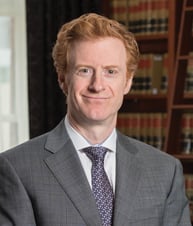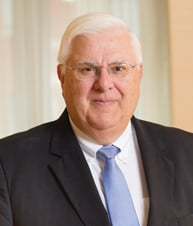Seeking to avoid exposure to the dispute settlement system of the World Trade Organization (WTO), the head of the new White House National Trade Council has requested a legal analysis from the U.S. Trade Representative (USTR) to clarify the unilateral trade measures the U.S. might take to punish foreign trade partners for alleged unfair trade practices. This indicates a willingness of the Administration to engage in a form of brinkmanship on trade that could generate a ripple effect around the world.
Background
The USTR is likely to inform the White House that a number of existing statutes provide authority for “unilateral” action on trade. Section 301 of the Trade Act of 1974 allows the USTR to retaliate against discriminatory foreign trade practices, including by imposing retaliatory tariffs. Since the inception of the WTO and establishment of WTO jurisprudence, however, the U.S. has deferred that action until prior authorization by a WTO dispute settlement panel. Section 201 of the Trade Act allows the President to erect a global safeguard against specific classes of products, such as steel or aluminum, if found to cause serious economic injury to U.S. industry. Section 232 of the Trade Expansion Act of 1962 allows the President to temporarily “adjust imports” of foreign products that threaten national security. Conceivably, such adjustments may include the imposition of temporary duties, quotas, tariff rate quotas or outright import prohibitions. In a throwback to classic trade remedies, the Commerce Department already appears poised to return to a long dormant and infrequently used practice of self-initiating antidumping and countervailing duty proceedings against foreign exporters of various products.
What Would It Mean for Trade?
Unilateral punitive trade measures taken against major trade partners are almost certain to engender multiple responses that could harm the ability of U.S. exporters and investors to engage in global markets. If the Trump Administration takes significant trade actions absent WTO authority, economies such as China, the EU and Mexico are likely to respond with legal challenges at the WTO –but also potentially with direct tariff retaliation against U.S. exports. Trade partners might also be expected to erect various non-tariff regulatory barriers to frustrate market access for both U.S. exporters and U.S. investors. A unilateral policy course could also deprive the Trump Administration of the political capital required to pursue bilateral “free and fair” trade agreements with various countries and encourage foreign markets to continue to integrate with free trade agreements that exclude the U.S.
Open Questions
- The trade committees in the U.S. Congress (Senate Finance and House Ways & Means) have statutory authority over the USTR, as well as constitutional authority over foreign commerce. How, and how soon, will these committees respond to the course set by the White House?
- For generations, the U.S. has defended the legal and policy underpinnings of the rules-based global trading system under the WTO. To what degree will the Administration place a particular set of objectives above this tradition?
- Is this request by the White House laying the groundwork for far-reaching protectionist policies, or is it the opening move in a leveraged play by the Trump team to renegotiate the WTO dispute settlement system?
- Will U.S. exporters and industries heavily invested in world markets organize to lobby the Administration and Congress to reject actions that seek to evade WTO rulings?
- How will foreign countries retaliate? The political sensitivity and national reach of U.S. agriculture presents an ideal first target for aggrieved foreign governments.
What to Watch For
- Indications that the White House is considering investigations and actions, such as Federal Register notices, press releases and even presidential tweets that identify potential targets.
- Trade diplomacy between the U.S. and key partners NAFTA, China and the EU for indications of frictions in specific economic sectors.
- Appointments of senior, political officials in government positions who will be crucial for the implementation of trade policy at USTR, Commerce, State and Treasury, including a potential special prosecutor for trade-related litigation.
*The Night Note has a long tradition in Washington, where for years it has been a channel used by cabinet secretaries to alert the White House of critical issues and vital news that should be among the President’s priority concerns. We’ve adapted it here to communicate timely issues that concern the trade and investment community stemming from new policy actions and decisions taken by the Trump Administration.

